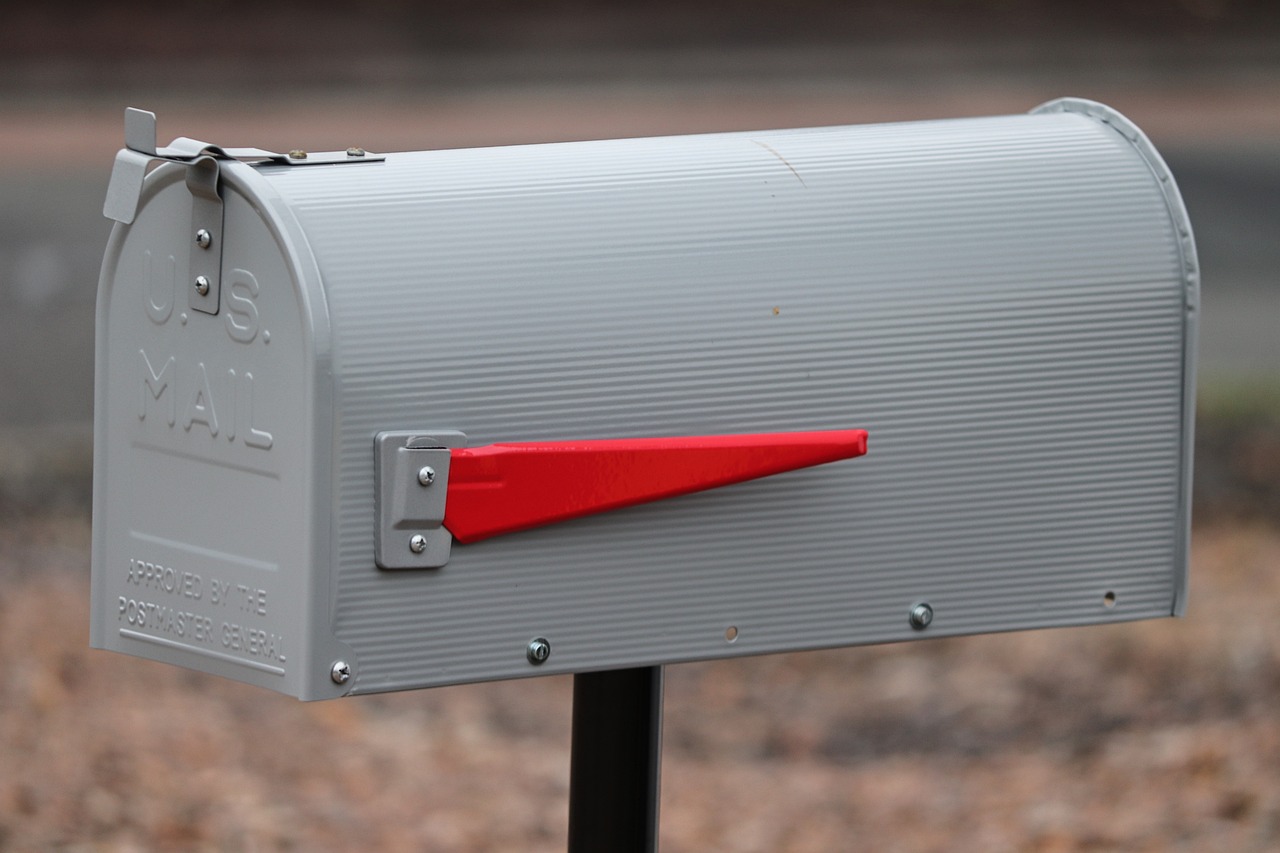Yes, generally speaking, another individual may legally accept served paperwork. However, there are certain state and local rules and laws regarding the lawful receipt of served documents. This is why such paperwork is usually served via a professional process server that delivers the documents to the appropriate person or location.
If the process server or individual does not serve the papers properly and legally, many issues could arise. At D&R Legal Process Service, LLC, our legal experts have 36 years of experience providing fast, smooth, and lawful process-serving for clients.
Consult Professional Process Servers Before Serving ANY Court Documents
Whether providing a private investigator, assisting judgment enforcement, expediting court filings, or professionally serving critical paperwork, seasoned process servers make the service process as streamlined as possible. In the end, clients can move on with their cases confidently and successfully.
Before you have a process server or anyone else serve legal papers, make sure you understand your state’s rules. The best way to serve any court document is by delivering it to the intended recipient. If this is not a viable option, you may be able to have legal papers served to a so-called surrogate.
Let’s cover the basics of process service, the types of process servicing, and your options in process-serving other individuals instead of the intended recipient.
Firstly, Who Are Professional Process Servers and What Do They Do?
A professional process server is an individual or company hired to serve papers, or legal paperwork, to individuals or parties involved in a legal case. A process server may serve on behalf of a law firm, government agency, or private individual.
The process server is tasked with serving various court documents in an efficient, appropriate, and lawful manner. This ensures due process, as the defendant personally receives the notification of the legal action undertaken.
Process servers deliver legal documents, such as:
- summonses
- subpoenas
- complaints
- writs
- divorce papers
- child support
- debt collectors
- evictions, and more
The process server is hired to locate a specific person or party to be served, and then serve documents to that party following relevant laws and regulations. Most process servers make multiple attempts to deliver paperwork to the intended party directly.
Process servers may use phone calls, email, and other means of communication before opting for other delivery methods.
Can You Process Serve? Knowing Who Qualifies to Legally Serve Papers.
Most process servers have the expertise, tools, and due diligence to locate even evasive defendants. If a process server is unable to deliver papers traditionally, certain exceptional actions may be permitted.
Although it is recommended that court documents be served by process servers, many individuals may qualify to serve, depending on local and state rules and regulations.
Generally, anyone 18 years of age or older and not a party to the case may serve. Of course, this may change depending on the type of document and the jurisdiction in which it is served. In some states and jurisdictions, the server may need to be registered as a process server or maintain a license to serve papers.
Types of Process Servers – Who Can Engage in This Process?
It’s important to recognize the various individuals, professionals, and entities who can legally engage in process service. Remember, in all cases, potential servers must be of age and not a party to the legal case.
A process server may be:
A friend or family member – Assuming they are 18 or older and not privy to the case, a friend or relative can serve your documents. Nonetheless, experts recommended using a neutral party to ensure proper service.
A professional process server – These individuals or companies specialize in serving legal paperwork and provide the necessary experience and expertise to abide by the law. They also have tools and mechanisms that allow them to serve appropriately and efficiently, especially if the intended recipient cannot be readily located.
A top process server can even track down evasive defendants.
A sheriff or law enforcement officer – Depending on the jurisdiction, a county sheriff or police officer may deliver (or even be required to deliver) various documents. These documents may include a court order such as a restraining order or other papers.
A lawyer or attorney – Some lawyers and attorneys can also serve court documents. Just make sure the serving attorney is not representing you, as this can be a serious conflict of interest!
You might also enjoy these recommendations: San Francisco Process Server
What If a Professional Process Server Can’t Locate the Intended Recipient?
If the process server or person serving cannot locate or serve the opposing party, there are various alternative options. The server may be able to deliver the documents to some other party instead of the intended recipient.
Although laws vary, process servers will typically attempt the following four forms of delivery to complete service.
Process Serving through Personal Service
Personal service is the most common method for ensuring the party is properly served. In this service form, the service of process is completed by delivering the documents directly to the intended individual. Personal service typically involves serving legal documents physically hand-in-hand.
Should the individual accept documents, the process server will explain the civil procedure so that the recipient is fully aware of what is transpiring. Should the process server leave without appropriately delivering the documents, potential legal issues could arise.
In some cases, the process server may leave papers at the defendant’s door.
Process Serving through Substituted Service
If a process server cannot locate or directly serve the intended individual, he or she may perform substitute service. Substituted service simply means the server may leave papers with a substitute, whether it be a trustworthy adult, a relative or co-worker, or someone else over the age of 18 at the same household, same house, or same workplace.
Depending on the jurisdiction, substituted service may not be permitted unless under certain circumstances. For instance, if the intended recipient cannot be located following reasonable efforts, service of process may require a substitute.
In other cases, only when the intended recipient cannot be personally served due to refusal or avoidance is substitute service permitted. Should the process server serve minor children instead of the intended recipient, there may be serious consequences.
Process Serving through Mail Post Office
Service of process by mail and post office may be permitted if the process server cannot locate or serve through substitute or direct service. In this case, the process server uses first-class mail or priority mail to send certified mail. The certified mail is sent to the current street address or forwarding address. The process server then delivers proof of service once the return receipt requested has been provided.
If you are not using a process server, you may be able to still send by certified mail. The small claims court clerk will mail the summons to the defendant. Whether by first-class mail or priority mail, the court clerk will ensure certified mail is delivered to the appropriate address.
Once the defendant signs, a return receipt is sent to the courthouse to prove the valid service of process. The court clerk and other court clerks will preserve a copy of this proof of service.
Process Serving through Publication or Public Notice
Often called service by publication or publication service, this form of service is used as a last resort. It is applied when the defendant is avoiding service, lacks an address, and/or simply cannot be found. In this case, the process server will publish a summons in a local newspaper or other forms of publicly available media.
If the defendant is intentionally avoiding the process server and this can be proven, the judge may take certain actions. Assuming the process server has made every reasonable effort to serve papers, but the defendant evades, a judge can issue what is called a default judgment. This judgment may determine the plaintiff as the winner of the case.
Ensure You Have the Best Process Server Available
In all cases, the process of serving papers must follow specific rules to ensure all documents are properly served. For this reason, it is recommended that all plaintiffs hire a professional process server or consult with a legal professional to ensure that the service is done correctly.
Process servers will file a “proof of service” document with the court to demonstrate everything was performed properly. The proof of service document, upon notarization, is typically called an affidavit of service. This will show the identity and location of the person served, the date of service, the type of document served, and more.
At D&R Legal Process Service, LLC., our seasoned process servers will take all steps to ensure your documents are delivered properly, swiftly, and without hassle.
How Do Process Servers Prove Service of Process?
Process servers must generally provide proof of service through a document confirming that the legal forms were appropriately served. Across jurisdictions, these specific requirements for proof of service may vary significantly.
The most common four forms of ‘proof’ in process serving include:
Certificate of Service
Many times, process servers must complete and sign certificates of service. These documents detail the manner in which papers were served and to whom they were served.
Affidavit of Service
This document is called an affidavit of service and is signed by the process server. As a sworn statement, the affidavit verifies that all necessary documents were served to the right party in the right way. Oftentimes, this document is notarized and signed under penalty of perjury.
Return of Service
When a process server files a return of service with the court or requesting party, that server is confirming appropriate delivery. This document may detail the date, time, and location, in addition to personally identifiable data of the individual served.
Personal Service Acknowledgment
Unlike the other documents, this paperwork is filled out by the individual served. Typically requiring a signature, the personal service acknowledgment confirms that the person received documents from a process server.
Depending on the jurisdiction, both servers and individuals served may be required to complete and present one or more of the aforementioned documents. Failure to complete the necessary paperwork or falsification of this paperwork can result in serious consequences.
FAQs on Process Serving
Who Can Accept Served Documents?
The rules for accepting court papers vary based on the jurisdiction and the type of case. That said, general rules apply. The individual accepting papers must be at least 18 years old and not a party to the case. He or she must also be authorized to accept such documents. A friend, relative, coworker, or other responsible adults may qualify. Be sure to consult a legal professional to ensure the service of process is legal and valid.
Is It Legal for Someone Else to Accept Served Documents?
Again, it all depends on the rules, laws, and regulations of a given jurisdiction. If other individuals are legally permitted to accept served documents, then this may be one option for the defendant to receive the necessary papers. When accepting these documents on a defendant's behalf, other parties must be responsible, authorized, and at least 18 years of age.
How Does a Defendant Know if He or She is Served with Legal Papers?
If a person is being served with court documents as a defendant in a legal case, there are various ways he or she will know. Through personal service, a process server or law enforcement officer may serve the defendant. The serving individual will self-identify and explain the civil procedure so that the defendant understands. Service may also occur through substituted service, whereby another party receives the paperwork on the defendant's behalf. Defendants may also receive documents by certified mail. The defendant's acknowledgment of service by signature is typically an important part of this service of process.
Can a Defendant Refuse Service of Court Papers?
Generally, a defendant in a legal case cannot outright refuse the service of court documentation. After all, the service of these documents is legally required so that the court has jurisdiction over the defendant. The service of process also ensures that the defendant has been rightfully notified of legal proceedings. Across jurisdictions, the specific procedures and rules for filing and serving court paperwork vary. In some cases, a process server may be required to attempt to serve papers at a defendant's residential address or place of business a specified number of times before alternate methods are permitted. The server may obtain permission from the court to use other service methods. In rarer cases, the court can issue a judgment against the defendant, awarding the plaintiff the victory in the case.
Are There Any Consequences for Refusing to Be Legally Served?
Absolutely! If a defendant refuses to be served with the appropriate papers, this refusal can complicate the legal process and even prevent certain proceedings. The consequences of service of process refusal may include: Legal proceeding delays - This often happens because the plaintiff may require alternate methods of service or need to obtain a court order following refusal or defendant evasion. Default judgment - Defendants who don't respond to serviced papers following the service of process may face default judgment. This gives the court the ability to enter a judgment in favor of the plaintiff. In such cases, the defendant may be completely unable to build a defense. Contempt of court - Sometimes, the courts regard the refusal of service as a violation of court authority. When this happens, the defendant may be held in contempt of court. As a result, the defendant may incur fines, sanctions, or even time in jail. All parties involved in a case should view paperwork and process serving as serious legal matters. Failure or refusal to properly follow rules, laws, and procedures may lead to severe consequences.
Get Papers Served Quickly and Appropriately Today
If you want to avoid the stress and inefficiencies of the court system, squandering time in long lines, and worrying over proper procedures, you have help. At D&R Legal Process Service, LLC., we eliminate the headaches and hassles and make serving and filing paperwork easy.
Don’t go combing through the yellow pages wondering who you can trust or where you should turn. If you seek seasoned legal professionals with many decades of experience, full-service support, and fast and smooth delivery, you need the process servers of D&R Legal.
Having trouble locating a pesky defendant or getting the right party served? Not sure about your jurisdiction’s rules or procedures? Simply tired of thinking about court?
Contact D&R Legal today. Our top process servers will streamline the entire process, every step of the way.
You might also enjoy these related recommendations: Process Serving Service in Fremont











Process server left papers with someone else and they don’t live with me and it was not where I live at i saw it on line
Some states will serve documents at the last known address. You will need to check with a local server in your state.